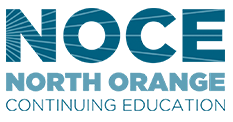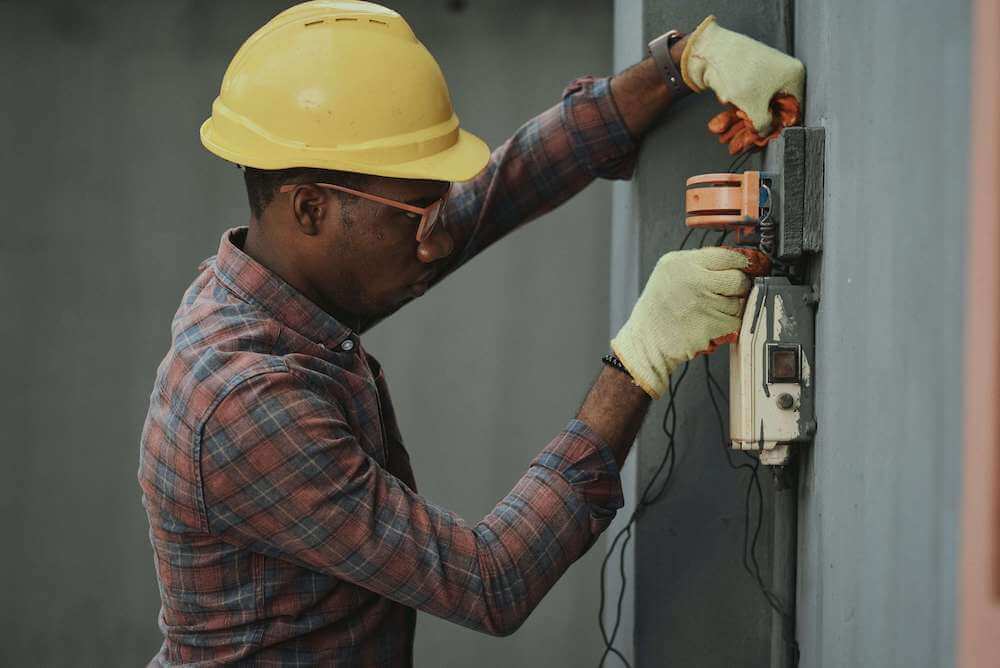
No cost info

Financial aid (may be available)

Financial aid (may be available)

No cost info
This program prepares students for jobs installing, repairing, maintaining and servicing electrical and electronics equipment. Electrical/electronics jobs are found in the fields of electrical, medical, industrial, commercial systems, programmable logic controller systems, automotive, communications and others. The following courses are part of the Electricians Trainee Program and approved by the Division of Apprenticeship Standards: ELECT-120, 121, 130, 220, 230, 266, 267, 271, ELTRN-210 and CNT-103. To earn a certificate of achievement, students must complete each course used to meet a certificate requirement with a “C” grade or higher and maintain an overall GPA of 2.5 or higher in the coursework required for the certificate.
No cost info

No cost info
No cost info
Our Online Electrician Training courses align with the National Electric Code (NEC) to help you develop the safe, electrician skills employers demand. That includes electrical equipment installation and tool usage, basic electricity and AC current theory, and a wide range of installation procedures for both residential and commercial properties.
No cost info
Electrical work has some of the best opportunities for career stability, especially for residential technicians. If you want to start a career in electrical work, this 100% online course will prepare you for an entry-level residential electrician apprenticeship.
No cost info
The main focus for Electricians is to install, repair and maintain electrical power, lighting, communications and control systems in businesses, homes and factories. Our online electrician trade classes begins with the basics of communication, bidding, records and ethics. Then moves on to the career focused subjects of safety for Electricians, electrical circuits, the National Electric Code® and much more.
$1,239 total
Licensed electricians are skilled professionals that fulfill a vital role, and the opportunities for growth and success are virtually limitless. And although the education and training process takes some time and effort, there’s no doubt that it’s absolutely worth it.
Here’s more good news: now, there are more options than ever to make electrician training as accessible and convenient as possible. As a result, you can find many ways to fit the required courses into your schedule. Independent Electrical Contractors Rocky Mountain (IECRM) offers online classes for electrician training, so you can take the first steps toward your future career without even leaving your home.
No cost info
San Francisco is a thriving hub for various industries, and the demand for skilled electricians is no exception. The city's bustling economy and ongoing infrastructure projects create a promising job market for those looking to become electricians. By enrolling in an electrician school, individuals can gain the necessary training and certification to earn a competitive electrician salary and become a valuable asset in the San Francisco job market.

An electrician is a skilled professional who specializes in the installation, maintenance, and repair of electrical systems and components. They are responsible for ensuring the safe and efficient operation of electrical infrastructure, ranging from residential and commercial buildings to industrial facilities.
To become an electrician in San Francisco, individuals must typically complete a combination of classroom instruction and hands-on training. This typically involves completing an apprenticeship program, which combines on-the-job training with related technical instruction. The duration of the apprenticeship can vary, but it is generally around 4-5 years.
The fastest path to becoming an electrician in San Francisco is through a vocational or technical school program. These programs, often referred to as "electrician school," can be completed in as little as 6-12 months, depending on the specific program and the student's prior experience. These accelerated programs provide a combination of classroom instruction and hands-on training, allowing students to quickly gain the necessary skills and knowledge to become a licensed electrician.
There are several options for electrician classes in San Francisco, each with its unique features and requirements. Here are a few examples:
While in-person electrician classes are the most common path, there are also online and free options available in San Francisco.
Online Electrician Classes Several online education platforms, such as Udemy and Coursera, offer online electrician courses and certifications. These programs provide the flexibility for students to learn at their own pace and on their schedule, making them a convenient option for those with busy lives or who prefer a self-paced learning environment.
Free Electrician Training Programs The San Francisco Office of Economic and Workforce Development (OEWD) and local non-profit organizations may offer free or low-cost electrician training programs for eligible individuals. These programs are designed to provide access to career opportunities in the electrical trade for underserved communities and individuals facing barriers to employment.
To become a licensed electrician in San Francisco, individuals must complete the necessary training and pass the required exams. This typically involves obtaining an Electrician Trainee Certificate, followed by passing the California Electrician Certification Exam. The certification process ensures that electricians have the knowledge and skills to work safely and effectively within the city's electrical infrastructure.
The job outlook for electricians in San Francisco is quite promising. The city's ongoing construction projects, infrastructure upgrades, and growing technology sector all contribute to a steady demand for skilled electricians. Potential employers for electricians in San Francisco include:
Becoming an electrician in San Francisco can be a rewarding career path, offering competitive salaries and a stable job market. By exploring the various electrician classes and training programs available in the city, individuals can take the first step towards a fulfilling career in the electrical trade. Whether pursuing a traditional apprenticeship, an accelerated vocational program, or online learning, the opportunities for aspiring electricians in San Francisco are abundant.
Looking for a better fit? These other articles could be more in line with your expectations if this one isn't precisely what you had in mind:
Dreambound's platform allows prospective students to find the right educational program for them through searching, filtering, and connecting with our extensive selection of career & technical education partners.
Dreambound has over 70 programs across healthcare, technology, business, and industrial trades. This includes programs such as Medical Billing, Cybersecurity, and welding.
Some of our schools offer financial aid for those who qualify. Many others offer payment plans, where you can pay the cost of class over time.
Yes, Dreambound offers many online programs. On Dreambound's search, you can filter by online, in-person, and hybrid (part online, part in-person).
Dreambound is completely free for you to use! We are supported by schools and organizations who pay to advertise on our website, so we can offer all of our career resources for free.